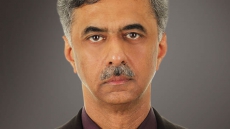“As of June 27, 2018, 337 Community Wildfire Protection Plans were completed by local governments and First Nations; another 54 are in progress.”
1. What measures of public and road safety will BC take for the safe regulation of cannabis?
In May 2018, the Province passed legislation to provide for legal, controlled access to non-medical cannabis. B.C.’s legislation provides a sound foundation for the regulation and safe implementation of legalized cannabis and reflects the Province’s goal of prioritizing public health and safety, particularly for children and youth. Impaired driving by a drug and/or alcohol is illegal in Canada and will remain so after cannabis is legalized.
Police are already able to test for drug-impaired driving using Standard Field Sobriety Tests (SFST) and through the use of Drug Recognition Experts (DRE). But we’re also strengthening our laws by providing police with additional tools to remove drug-affected drivers from the road for 90 days – a much more serious penalty than the existing, 24-hour driving prohibition. And, we’re extending B.C.’s zero-tolerance restriction for the presence of alcohol to cover specific drugs, such as THC, for new drivers.
Like other provinces, we’re still waiting for oral fluid screening devices to be procured and distributed to police across the country. B.C. will also develop its own public education and awareness initiatives that are tailored to the needs of British Columbians.
2. How will this legalization affect the younger generation?
The Province’s regulatory framework for non-medical cannabis is guided by the priorities of protecting children and youth. The Cannabis Control and Licensing Act (CCLA) contains a number of specific provisions designed to help keep cannabis out of the hands of children and youth and reduce their exposure. Children and youth also learn about substance use, including cannabis, in their classrooms, from Kindergarten through Grade 10, through B.C.’s Physical Health Education curriculum.
3. Does the province have any marketing and distribution plans in place to keep cannabis out of the wrong hands?
Consumers will be able to access legally produced cannabis from public and private provincially licensed cannabis stores. To promote responsible use, licensed retailers will only be allowed to sell cannabis and cannabis accessories, and will be prohibited from selling other products alongside cannabis such as liquor, tobacco, food, gas, clothing and lottery (there will be exceptions for rural businesses).
Additionally, under the federal Cannabis Act, all cannabis product packaging and labelling will be strictly regulated by the Federal government and will be required to include specific information about the product and health warnings. The Federal has also put strict regulations in place for advertising and promoting cannabis.
4. How is your ministry tackling the growing wildfires in BC?
Since 2004, over $81 million has been allocated to the Strategic Wildfire Prevention Initiative to help local governments and First Nations significantly reduce wildfire risks around their communities. Strategic Wildfire Prevention Initiative funding is administered by the Union of British Columbia Municipalities (UBCM).
As of June 27, 2018, 337 Community Wildfire Protection Plans were completed by local governments and First Nations; another 54 are in progress. These plans identify areas at risk and prescribe fuel management projects to address those risks. Projects may include: conventional harvesting, prescribed burning, improving the spacing between live trees; removing dead trees; and cleaning up low branches, needles and wood debris that could potentially fuel a fire.
5. Does BC have enough resources to handle the current wildfire crisis?
More than 1,600 firefighters and support staff are available for the 2018 wildfire season. The B.C. government is able to call on over 2,500 private-contractor firefighting resources and a multitude of contingency resources (including those in other provinces). In preparation for the 2018 wildfire season, the BC Wildfire Service procured contracts for additional eight-person, “Type 2” firefighting crews (comprised of up to 120 people) that meet the Canadian Interagency Forest Fire Centre’s Interagency Exchange Standard.
6. Most of the wildfires are started by humans, how is the ministry creating awareness on this issue?
Nearly half of all wildfires each year are caused by human activity, so the BC Wildfire Service puts a strong emphasis on wildfire prevention, public education and enforcement. Public outreach has been significantly expanded to make full use of online resources and social media tools. Anyone found in contravention of an open burning prohibition may be issued a ticket for $1,150, required to pay an administrative penalty of $10,000 or, if convicted in court, fined up to $100,000 and/or sentenced to one year in jail.
7. How can the public help in reducing or stopping wildfires and help those affected?
Everyone in the province has an important role to play in preventing wildfires. One of the primary goals is to reduce the number of wildfires caused by people. Human-caused wildfires are preventable and they unnecessarily divert firefighting resources from naturally occurring fires. We need everyone to do their part by refraining from activities that may cause wildfires. If you’re a smoker, always fully extinguish your cigarette and dispose of it responsibly. Never throw it out of your vehicle window. If you see something report a wildfire or open burning violation, you can call 1 800 663-5555 toll-free or *5555 on a cellphone.
8. Based on the past and current BC wildfires, is there anything that the province and public can do differently to avoid it in the coming years?
As part of Budget 2018, the B.C. government is providing $72 million over three years, specifically to help with the recovery of communities and landscapes that were affected by the 2017 wildfires. This money will also help communities become better prepared for wildfires, through investments in wildfire risk reduction projects. This new funding is in addition to the annual allocation for direct firefighting costs, which is set at $63 million for 2018-19. As part of its preparations for the 2018 wildfire season, the BC Wildfire Service: reached out to stakeholders and partners to establish or strengthen key relationships with land managers, hired more fire information officers and hired more Type 2 firefighting crews.
9. Gang violence is a major concern, especially in Surrey, despite various policies and plans, why does it still exist?
People deserve to feel safe in their communities and gang and gun violence is absolutely unacceptable. Unfortunately, it’s not going to be solved overnight. Ending the gun violence that’s taking young lives and threatening bystanders will continue to require strong, strategic prevention and enforcement efforts – with a long-term commitment from all levels of government, police, teachers, parents and others. A strong response to ending the violence must also include communities and families coming together and finding solutions. Last fall, Premier Horgan announced $31.3 million over three years for critical enforcement and public safety initiatives.
10. What new introductions can British Columbians expect from your ministry in the coming months?
The ministry is busy working through the details of the upcoming cannabis legalization. It’s important to remember that that this is a complex process and changes will take time, and until laws change, the use of non-medical cannabis is still illegal in British Columbia. The date set by the Federal government for cannabis legalization will just be the beginning of this project.
In addition, activating certain intersection safety camera locations to ticket the fastest vehicles and increase road safety; changes to payday loans and cheque cashing that will make these products more affordable for British Columbians will take effect on September 1, 2018.
Ministry staff continue to work on the next phase of the Consumer Financial Protection Plan; building on the results of the March 2018 survey related to the potential regulation of the live event ticket buying and selling sector, the Ministry is doing further research to help the Minister make an informed decision about what he would like to do on this topic.





